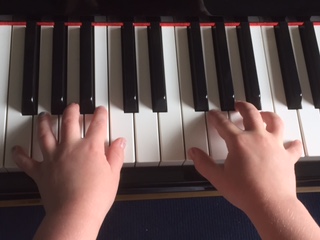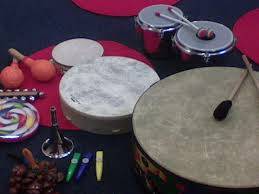For further information about Arts Therapies placements, please contact:
Clare Gillespie, Arts Therapies Service Lead at clare.gillespie@nhs.scot

Arts Therapies Practice Based Learning
Music therapy, art therapy and dramatherapy pre-registration degree programmes are delivered across the UK at postgraduate masters levels, with programmes combining both practical and academic study. The only training available in Scotland is at Queen Margaret Univeristy.
All programmes will leave you eligible to apply for registration with the Health and Care Professions Council (HCPC) and membership with the British Association for Music Therapy (bamt.org), the British Association of Art Therapists | BAAT) and The British Association of Dramatherapy (www.badth.org.uk).
You will require to be registered with the HCPC to be able to work and practice as an Arts Therapist in the UK.
Academic course components include:
- Theoretical studies encompass psychodynamic, humanistic, developmental and music-centred approaches
- Therapeutic skills in the relevant arts modality, with an emphasis on improvisation, interaction and application in a therapeutic context
- Knowledge of different areas of need, diagnosis and work contexts for different client groups
- Observation and critical thinking
- Self-development, personal therapy
- Experiential group work
- Professional issues, such as ethics and team communication
- Person-centred practice and leadership
- Practice placements
Practice placements
Students gain experience in a variety of practice settings. Placements vary in length and can be in a range of different clinical areas across children and young people and adult services.
Theoretical knowledge is developed, integrated, and applied through regular practice placements.
NHS Borders
In NHS Borders we are committed, through our Practice Placement Agreement (PPA), to offer a specific number of student placements throughout each academic year.
All students are expected to comply with the HCPC Guidance on conduct and ethics for students | (hcpc-uk.org) to:
– promote and protect the interests of service users and carers – communicate appropriately and effectively – work within the limits of their knowledge and skills – delegate appropriately - respect confidentiality - manage risk - report concerns about safety – be open when things go wrong – be honest and trustworthy and keep records of their work with service users and carers.
Placement specific information
Students placements may be located across a range of speciailist services across NHS Borders. These may include:
Children and Young People's Services
Adult Mental Health (Melburn Lodge, Huntlyburn, Cauldshiels)
Stroke unit
Alll students will have already been advised from University which service they will be working with for their forthcoming placement.
Dress Code
For community based placements, smart/casual clothing which allows for active engagement in assessment and therapeutic sessions is required. Bold branding clothes to be avoided. For hospital based placements, uniforms will be supplied. Please refer to NHS Borders Dress Code / Uniform policy and contact your Practice Educator prior to the start of your placement.
Confidentiality
All Arts Therapies students must be familiar with the NHS Borders Confidentiality Policy, prior to arrival on placement, as each student will be required to complete and sign a confidentiality form as part of their induction.
Lunch/ Breaks
It is advisable to bring your own lunch on day one of placement, and any additional snacks required. For placements at Borders General Hospital, hot meals are available in the dining room (1st Floor) and there is a small shop near to the hospital entrance where you can purchase hot drinks and snacks.
Library Access
There is a library within the Borders General Hospital site at the Education Centre, which students are able to access. As well as books and journals, the library offers computer and photocopier access. Access information will be available to all students as part of your induction.
Links to useful sites
‘The keys to life’ – a national strategy for people with learning disabilities in Scotland http://www.scotland.gov.uk/Resource/0042/00424389.pdf
Easy read version: http://www.scotland.gov.uk/Resource/0042/00424500.pdf
Mental Welfare Commission for Scotland: http://www.mwcscot.org.uk/
Scottish Consortium for Learning Disabilities: http://www.scld.org.uk/
Creating Hope Strategy: nhsborders.scot.nhs.uk/creating-hope/

